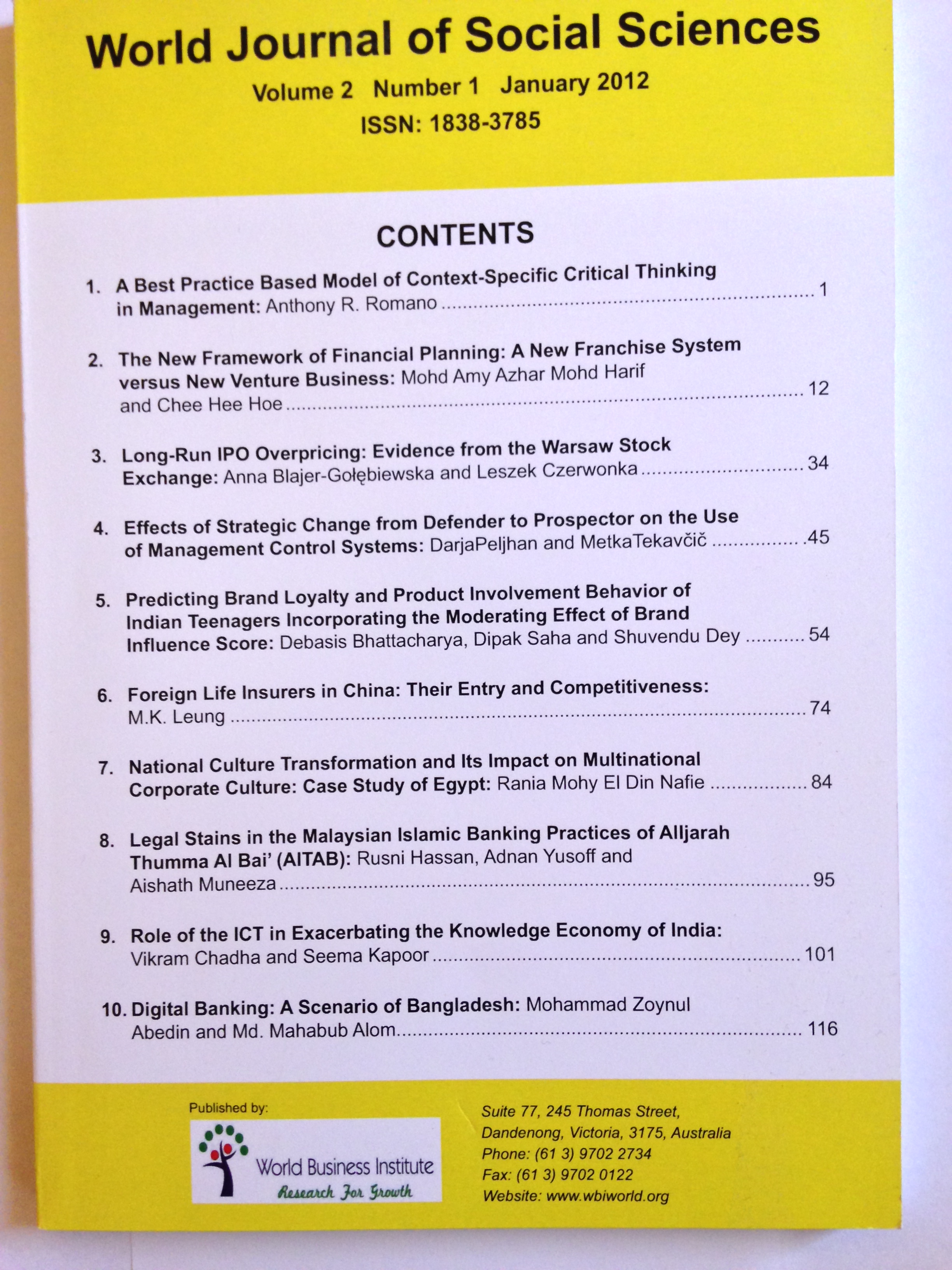September 2017 (World Journal of Social Sciences)
Total Articles - 7

